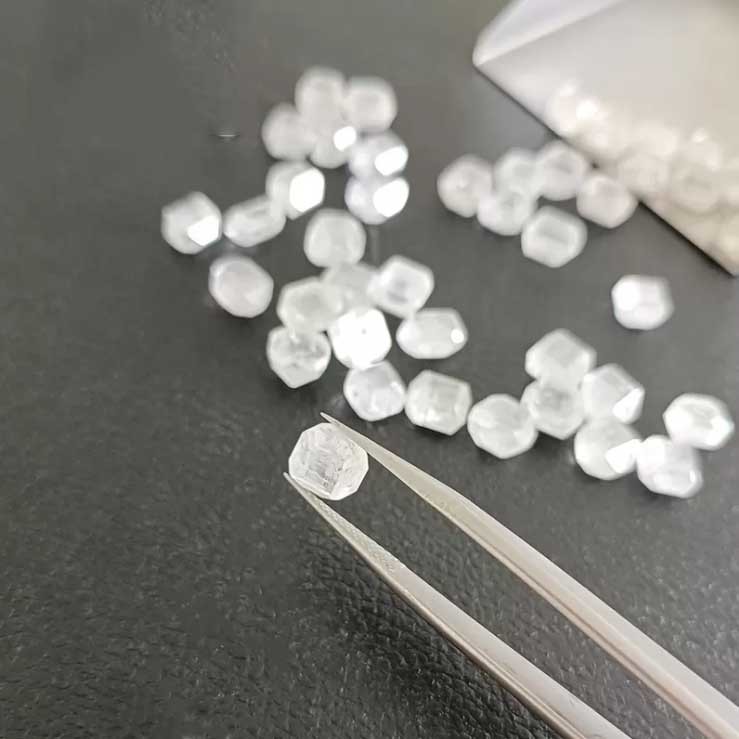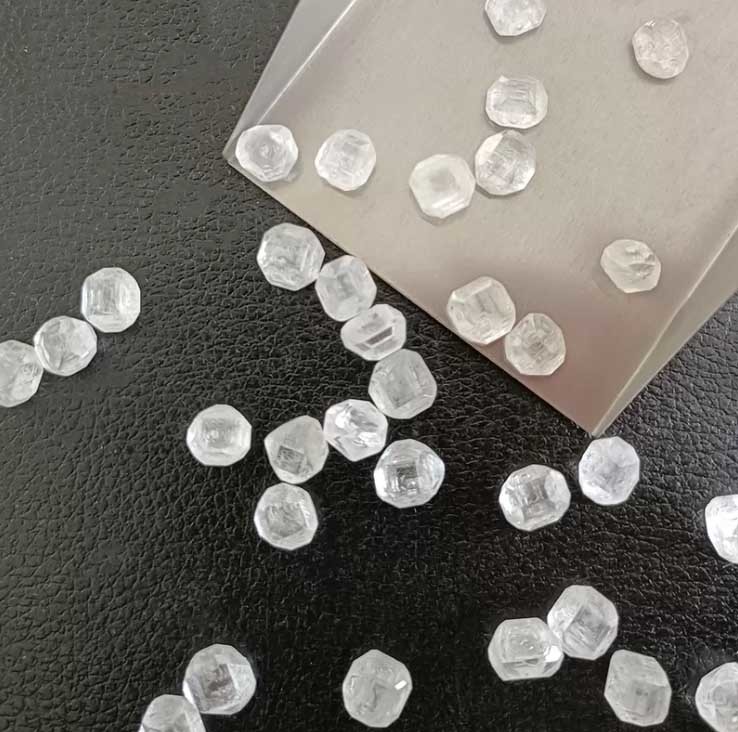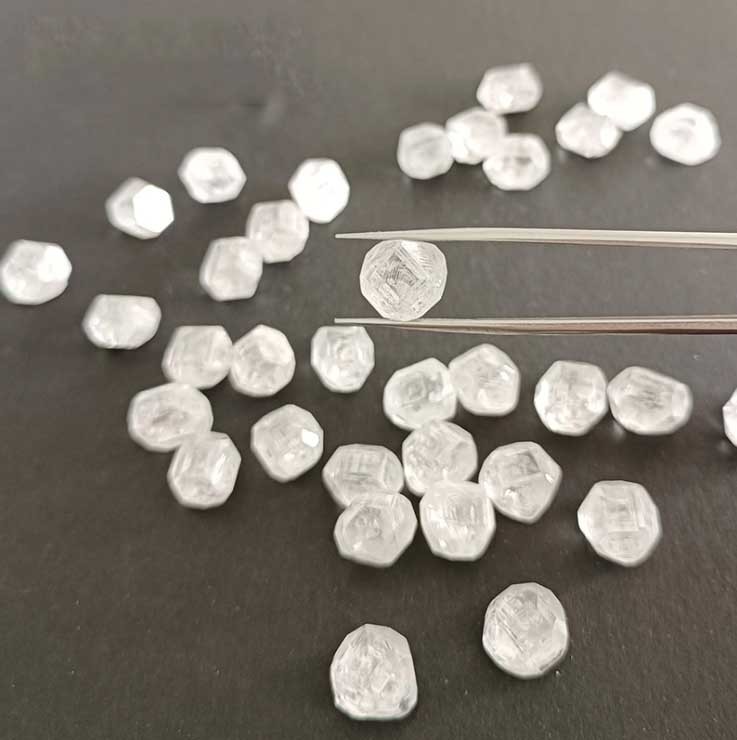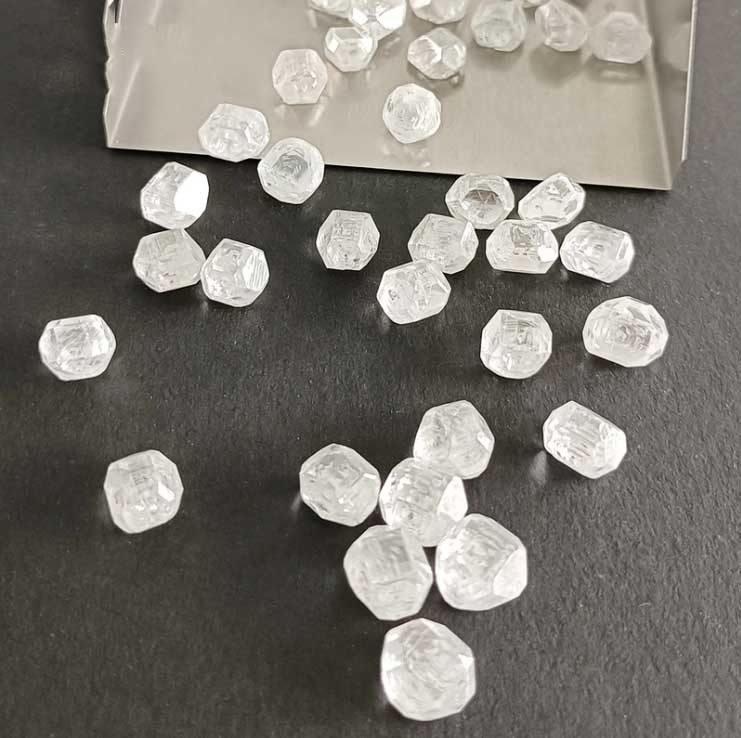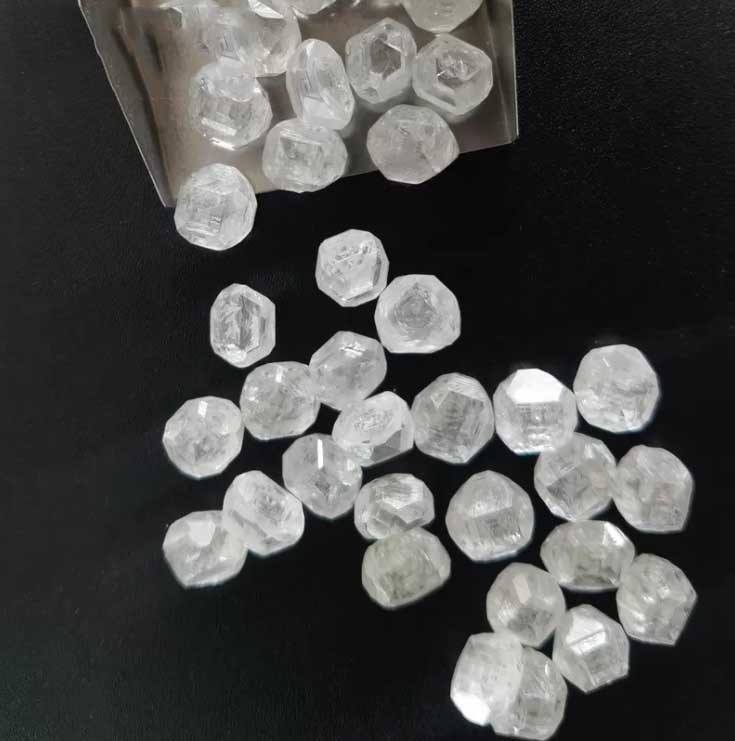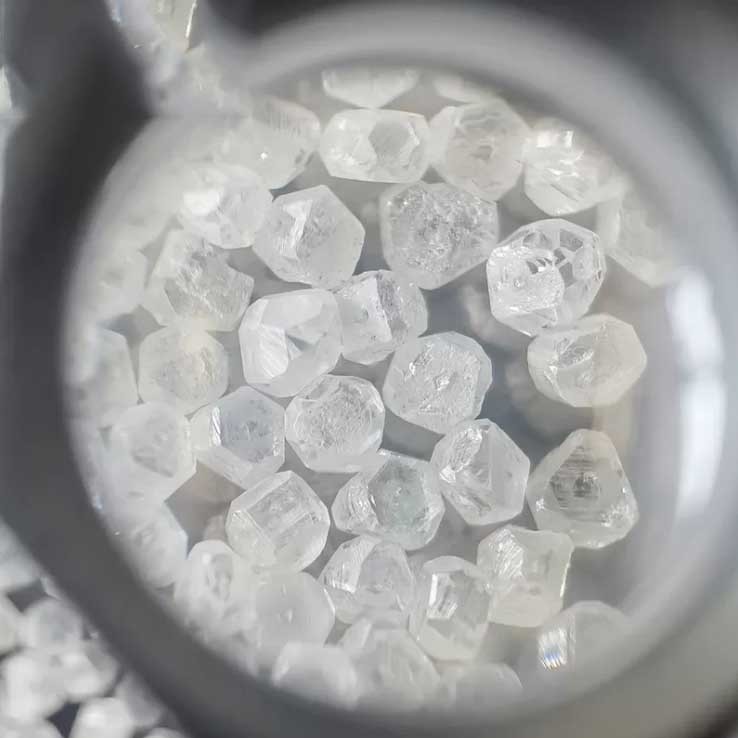

5-6ct HPHT Lab Grown Diamonds
CLARITY
VVS
CARAT
6
COLOR
E,D,F
CUT
Uncut Round
Introduction
| Product Name :: | HPHT Rough Diamonds | Colour: | DEF |
|---|---|---|---|
| Clarity: | VVS | Carat Weight: | 5-6ct |
| Technology: | HPHT | Application: | Jewelry, Ring, Necklace, Earring |
| Payment Terms: | 100% Payment In Advance | Payment Mode: | T/T, Bank Transfer, PayPal, Western Union |
| Delivery Time: | 1-7 Working Days Depends On Quantity | Courier: | DHL, FedEx, UPS, TNT, EMS Etc |
| Packaging: | As Export Standard | Hardness: | Moh's 10 Scale |
| High Light: |
6ct HPHT Lab Grown Diamonds,5ct HPHT Lab Grown Diamonds,HPHT Lab Grown Diamonds 6ct |
||
Lab Created Diamonds Description
Artificial diamond is also known as laboratory grown diamond, artificial diamond and natural diamond in chemical composition, crystal structure, optical properties and physical properties of no difference, only atomic structure level difference. The concept of lab-made diamonds has only entered the jewelry market in recent years, with many consumers questioning their identity and at one point believing that lab-made diamonds were fakes. The government responded that the lab-grown diamonds were not fake.
Compared with natural diamond, the biggest characteristic of lab created diamond is unrestricted output and low price. In recent years, with the continuous progress of technology, the yield and quality of lab created diamonds have been significantly improved, while the cost has further decreased.
In terms of production, According to Andrey Zharkov, the founder of ULTRA C, who shared in the Special Forum of Lab created Diamonds 2019, the global production of jewel-grade rough cultivated diamonds reached 6 million CT in 2019, and finished cultivated diamonds reached 2 million CT, with an output value of about 800 million USD. Global production of lab created diamonds also grew by 15-20% in 2018 and 2019, with most of the growth coming from China, bain & Company said in its global Diamond Industry Report 2019.
In 2016, the retail price of lab created diamonds was about 80% of that of natural diamonds. In 2017, the ratio dropped to 65%, and in 2019, it further fell to 45-50% or less. For the cultivation of diamonds with price as the main selling point, lower production cost and price is undoubtedly a strong support for its further expansion of market share.
Parameters Of Lab Grown Diamonds
| Product Name | Synthetic (Lab created) diamond |
| Material | Lab-grown |
| Color | D-H |
| Size | 35PCS/CT-5CTS/PC |
| Grade | VVS |
| Used | Jewelry (necklace,ring) |
| Application | For Cutting Lab Grown Loose Diamonds |
| Place Of Origin | Kaifeng, China |
Characteristics Of Lab Grown Diamonds
| The Difference Between Lab Diamond And Natural Diamond | |||
| Attribute | Lab Created Diamonds | Natural diamond | Distinction |
| Chemical composition | C(carbon) | C(carbon) | No |
| Refractive index | 2.42 | 2.42 | No |
| Relative density | 3.52 | 3.52 | No |
| Dispersion | 0.044 | 0.044 | No |
| Hardness value | 90 GPA | 90 GPA | No |
| Thermal conductivity | 2*103 W/M/K | 2*103 W/M/K | No |
| Thermal property | 0.8*10-6 K | 0.8*10-6 K | No |
| Light transmittance | DEEP UV TO FAR TR | DEEP UV TO FAR TR | No |
|
Resistivity |
1016 OHM-CM |
1016 OHM-CM |
No |
|
Compressibility |
8.3*10-13 M2/N |
8.3*10-13 M2/N |
No |
From a scientific point of view, they have the same physical composition, chemical properties, optical characteristics, even the authoritative gem appraisal agency has certified, of course, is the same, if there is anything different between the two, it is only the place of birth is different. For example, all people are born differently. Why look down upon others?
There is natural diamond is but a serious damage to the earth's surface bad environment, the cruel labor exploitation of the people of backward Countries in Africa, the endless harm caused by armed conflict, and finally the expensive stone monopolized by the diamond company marketing, and the cultivation of diamond is the light of human wisdom, the beauty created by science and technology.
Natural mining diamond contains impurities, in fact, color, purity is not much, so high grade can sell sky-high prices, but the basic cultivation drill is 2a type, is the top2% of the advanced category of diamond, cultivation drill cost is several times lower than natural diamond.
Carat 1
The size of a diamond is proportional to its carat weight. When rough diamonds are cut and polished into finished diamonds, up to 2/3 of the total carat weight may be lost. Since larger rough gems of high quality are found less frequently than smaller rough gems of high quality, a single two carat diamond will be more expensive than two one-carat diamonds of the same quality.
Color H
A diamond’s color is an important element of its quality. In a white diamond, the less body color present, the greater the value of the diamond. The GIA grades diamonds on a scale of D (colorless) to Z (noticeable color).
The predominant color you see in a diamond is yellow, which is caused by the trace element nitrogen.
Clarity SI1
Clarity refers to the presence of imperfections, flaws and blemishes inside or on the surface of a diamond.
The GIA grades diamond clarity under 10X magnification on a scale that ranges from Flawless (FL) to I2-3 (Included). Diamonds with the least amount of flaws having the highest clarity grading.
A diamond’s clarity has a significant impact on its value.
Cut Very Good
The cut of a diamond influences how effectively it reflects light. Well-cut diamonds appear fiery and brilliant and allow light to enter the stone and be reflected around the facets before exiting the stone through the top. Poorly-cut diamonds can appear lifeless and dark, despite their clarity or color grade.
Not only do well-cut diamonds appear more brilliant, they also tend to appear larger than other diamonds of the same carat weight.
Related Products
Message

